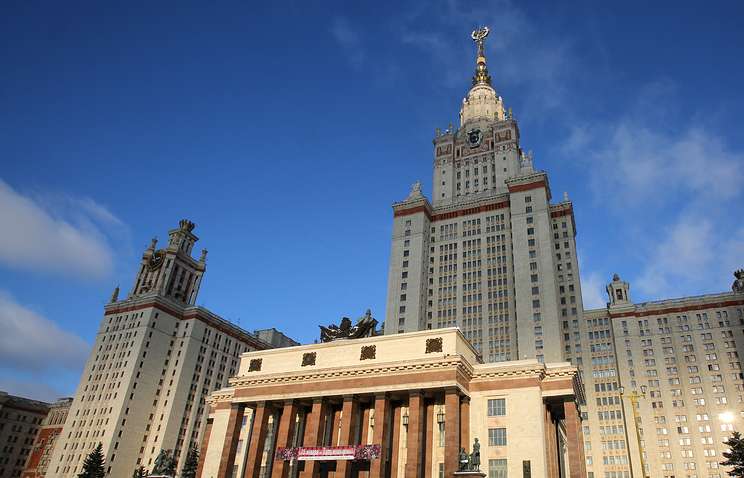
Although education in Russia remains a politicized area that is subjected tocovert and never-ending ideological skirmishes, some state policies turned out to be efficient. The stable rate of improvements throughout international rankings, however, might not stay for long, as the sphere still requires drastic reforms that are not coming at any time soon.
According to the recently published Worldwide Educating For the Future Index (WEFFI), produced by the Economist Intelligence Unit and presented by the Yidan Prize Foundation, an entity created to promote international education set up by Tencent co-founder Chen Yidan, Russia is ranked 26th worldwide on ensuring its youth is future-ready. The result marks a one-position improvement compared to the Index produced in 2017.
The improvements are attributed to the recently introduced state education strategy that is modified with clear milestones, implementation metrics and action plan. Earlier Vladimir Putin also ordered to split Russia’s Education and Science Ministry into two federal departments: the Education Ministry and the Science and Higher Education Ministry. The move deemed to assist in improving monitoring of quality of the secondary and higher education.
Earlier this year Russia has likewise witnessed an increase in THE World University Rankings-2019. The number of the country’s university rose from 27 to 35, while making its schools the fourth most represented in the list of other emerging economies. Russia’s top university, Moscow State University (MSU), however, was placed 199th in the magazine’s 2019 World University Ranking.
Improvements come at times when the Kremlin is striving to boost the numbers of foreign students. Earlier, the amount of such students enrolled in Russian universities went up by 40% from 2013 to 2017. The country currently hosts more than 243,752 international students and aimsto triple the amount to more than 700,000 by 2025.
Local officials still predominantly perceive education through the prism of old Soviet tenet of ‘soft power’. Therefore, the sphere is deemed to assist in nurturing friendly elites with preferable ideological persuasions mainly throughout emerging markets, some former Soviet satellite-states and specifically the Commonwealth of Independent States, hence cultivating close political and cultural long-term ties.
Although Russian education is clearly lagging behind in quality compared to Western analogues, it is much more affordable to those who struggle with getting any higher education whatsoever mostly throughout developing or impoverished communities.
In addition to generous funding available to internationals students, Russia also offers rare degrees at such spheres as medicine, engineering for reasonable, or no price at all. Recently Russian State Atomic Energy Corporation, Rosatom, announced scholarships in nuclear engineering for Indian students and that is just one of the many examples.
Improvements in rankings and quests to turn the country into an international educational hub that existed in times of the Soviet Union further accentuate augmenting politicisation of higher education that is not going away any time soon.
Throughout the past years, Russia has been increasingly returning towards the once forgotten Soviet education practices and witnessing greater pressure from the revanchist-minded officials. Last year President Vladimir Putin recreated a patriotic directorate inside the Russian army that echoed mandatory Marxists indoctrination in times of the USSR.
The country has also launched an unprecedented crackdown on ideologically unreliable private education.
Last summer, Rosobrnadzor, Russia’s education watchdog revoked the accreditation of the Moscow School of Social and Economic Sciences that is considered as one of the top and last remaining private universities. In 2016, another major private university, the European University in St. Petersburg, a private post-graduate school for the social sciences and humanities that was once named as the top research university of Russia, also lost its license amidst unclear messages from the state regulator.
This crackdown, however, comes at strange times when Russian education is actually experiencing a boom in investments in private schooling. With more wealthy Russians seeing the state’s efforts to impose a unified and inflexible curriculum as a dangerous path, those who could afford prefer to send their children to private schools where they are being exposed to the Western-style curriculums with a heavy accent on mastering English.
Although improvements in ranking seem to be impressive, many remain skeptical about long-term perspectives of the Russian education. Last year 22,000 teachers took part in the voluntary anonymous exam across the country and almost half the study participants failed.
According to Trisha Suresh, a senior analyst at The Economist Intelligence Unit, Russia still relies on science and traditional skills, while earning resources only partly cover skills needed to succeed in the future. The country also ranks low for teacher salary and in the socio-economic environment category, which likely would not let it to achieve further improvements in the ranking.
While witnessing unprecedented and yet stable improvements since the decadent post-Soviet era, positive changes, however, might not reflect burdensome structural problems. The latter threaten to put an extra pressure on the troubled area in Russia, hence hindering further progress.